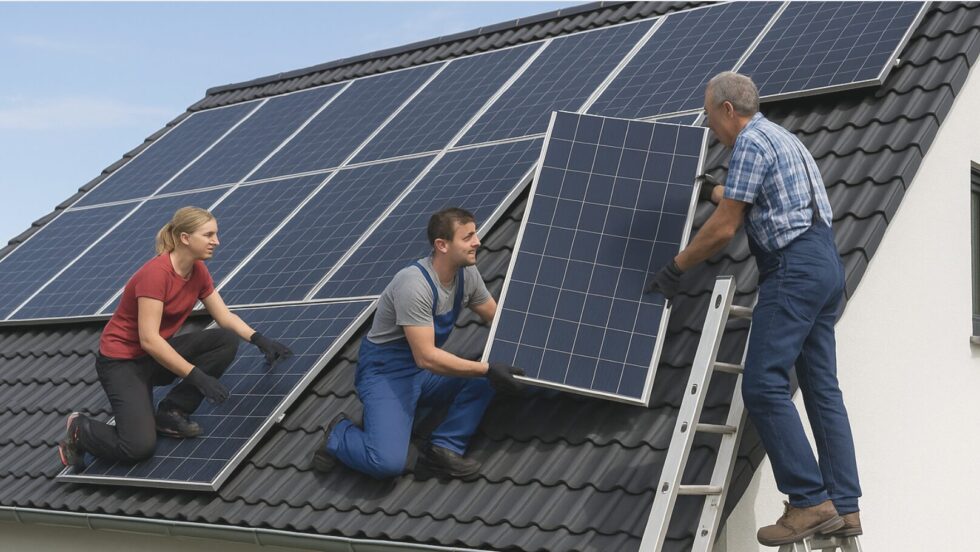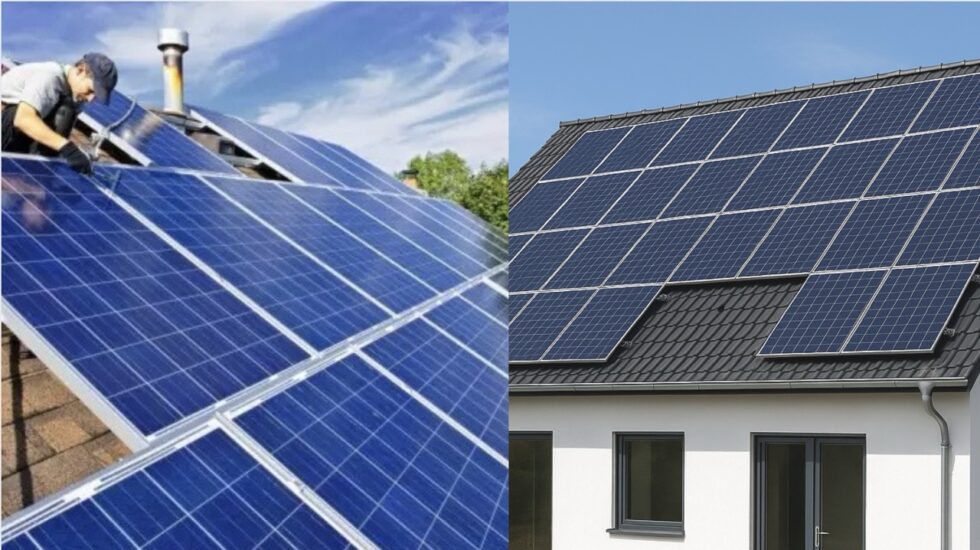As of January 2025, Germany enforces a major legal shift in its building sector: solar panels on rooftops, climate-linked low-interest loans, and a new nationwide property tax model are now mandated — not optional. These measures aim to reduce emissions, stabilize long-term housing costs, and accelerate the country’s climate goals.
For everyone from private homeowners to institutional developers, compliance is now tied to significant financial outcomes. Properties that meet energy and taxation criteria may benefit from up to €100,000 in green financing per unit, while unprepared owners risk delays, penalties, or financial setbacks under the reformed Grundsteuer. G.Business reports, citing detailed legal and economic analysis from Renewz.de.
Solar Obligations Become Standard Practice
In at least 11 federal states, installing photovoltaic systems is now legally required for new constructions and in many cases for roof renovations or major conversions. The goal is clear: accelerate Germany’s shift to renewable energy at the micro level.
| State | Start Date | Applies To | Regulation |
|---|---|---|---|
| Berlin | Jan 2023 | New builds, roof renovations >50% | Solargesetz Berlin (SolG Bln) |
| Hamburg | Jan 2023 | All new constructions | Hamburg Climate Act |
| NRW | 2022–2025 | Public roofs, parking spaces | NRW Climate Protection Law |
| Baden-Württemberg | Since 2022 | New buildings and roof retrofits | §8a Klimaschutzgesetz BW |
| Bremen, Lower Saxony, RLP, others | 2023–2025 | Varying applications | Regional solar laws |
Tip : Even re-purposing a building (e.g., barn-to-home) may trigger mandatory solar requirements. Consult an energy advisor before planning.
KNN Green Loans – Funding Climate-Friendly, Affordable Housing
Since late 2024, the German government has supported low-cost and energy-efficient housing through the KNN program (Klimafreundlicher Neubau im Niedrigpreissegment). As reported by Renewz.de, the program provides:
- Up to €100,000 per residential unit
- Interest rates starting at 0.01% via KfW
- Terms up to 35 years, including 5 years repayment-free
Eligibility Criteria
- Max construction costs: €2,800/m² (1–2 people) or €3,200/m² (3+ people)
- Efficiency standard: EH40 with sustainability class
- Primary energy demand < 30 kWh/m²a
Tip: Use the BMWSB calculator to test project eligibility.
Only fully compliant projects are eligible. Partial implementation = no funding.
New Grundsteuer (Property Tax) Reform – Recalculating the Market
Starting January 1, 2025, Germany implements a nationwide reform of its property tax system — affecting over 36 million properties.
Key changes
- New valuation based on land value, floor space, age, and use
- Most states follow the federal model
- Others (e.g., Bavaria, Baden-Württemberg) apply local variations
Example – Berlin
- Property: 400 m² land, 120 m² living space
- Old tax: ~€480/year
- New tax: €350–900/year depending on district
Tip : Review your new tax notice within 4 weeks — you have the right to appeal.
What Builders, Landlords & Investors Should Do Now
To stay compliant and competitive, proactive planning is key

| Action Point | Why It Matters |
|---|---|
| Check solar requirements in your state | Avoid permit delays or legal fines |
| Use KNN subsidy smartly | Access up to €100,000 per unit at nearly 0% interest |
| Calculate your new property tax burden | Budget accurately and avoid financial surprises |
| Combine PV with storage solutions (e.g., BAFA) | Increase energy independence and reduce costs |
| Get expert legal/energy advice early | State laws vary – don’t rely on assumptions |
2025: A Year of Regulation — and of Opportunity
The year 2025 is more than a regulatory milestone — it represents a strategic shift in how Germany builds, renovates, and manages property. For developers, homeowners, landlords, and investors, this is the moment to align construction decisions with policy — or risk falling behind.
Solar obligations are now enforced in the majority of federal states, turning photovoltaic installation from an eco-friendly option into a legal requirement for many new builds and roof refurbishments. Compliance ensures permit approval, while noncompliance may lead to delays, fines, or restricted usage.
The KNN program (Klimafreundlicher Neubau) offers low-interest loans of up to €100,000 per housing unit, available to those who meet strict energy efficiency and cost-per-square-meter requirements. This creates rare affordability within sustainable housing, especially for families and smaller developers.
Germany’s new Grundsteuer (property tax) affects over 36 million properties. While it introduces complexity — including varying valuation models by state — it also opens opportunities. Those who understand their local model and appeal unjust assessments can significantly reduce their long-term tax burden.
Timing and planning are key. Early movers gain access to subsidies before funds are depleted, avoid rushed compliance costs, and can design projects that maximize both energy performance and financial return.
In short, 2025 marks a pivot point for construction and property ownership in Germany: a framework of stricter rules paired with powerful incentives. Those who prepare now will not only meet legal standards — they’ll build smarter, cheaper, and more resilient properties for the future.
Stay connected for news that works — timely, factual, and free from opinion. Learn more about this topic and related developments here
